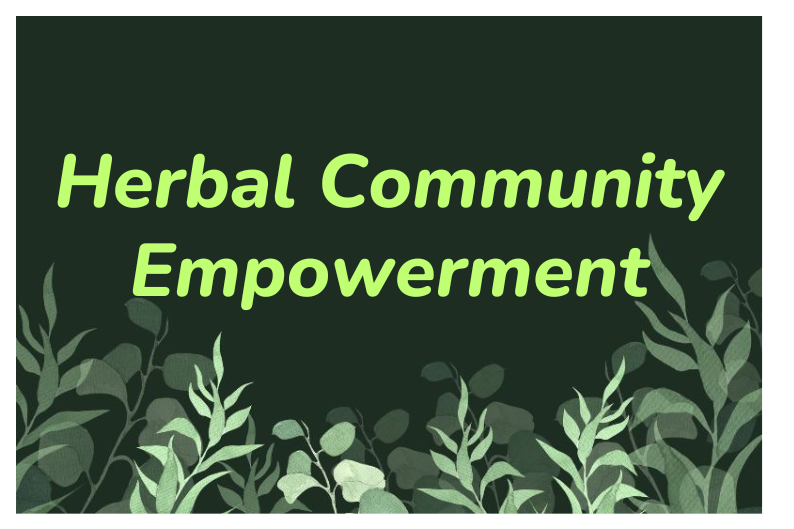
Herbal Knowledge and Community Health: Empowering Together
Herbal Knowledge, Community Health, Empowerment: Growing Stronger Together
Communities have always looked to nature for answers, connecting with plants and herbs to support health in gentle and powerful ways. When people gain herbal knowledge, they gain the tools to care for themselves and others, building stronger and healthier communities. This approach mirrors the teachings of natural health advocates like Gary Brecka and Barbara O’Neil, who inspire many to trust in the power of natural remedies and daily habits.
With the help of community-focused education and support, people can share ideas and learn together. Local gatherings, herbal walks, and shared gardens bring neighbors closer while teaching them about herbs and their everyday uses. Companies like MC Herbs strive to make these traditional practices more accessible by offering carefully chosen supplements that can fit naturally into daily routines, promoting lasting wellness for all.
Key Takeaways
- Herbal knowledge empowers people to care for themselves and their communities.
- Sharing herbal wisdom builds connection and collective wellbeing.
- MC Herbs supports natural health transformation with high-quality products.
Foundations of Herbal Knowledge and Community Health
Herbal medicine brings people and nature together by using generations of wisdom and the plants that grow around us. Traditional healing, scientific research, and self-care each play a part in keeping communities healthy and connected.
Traditional Healing Practices and the Power of Herbs
Herbal knowledge has deep roots in cultures like Ayurveda, where practitioners use time-tested herbal formulations to bring balance and healing. Across generations, people have gathered medicinal plants for teas, tinctures, and balms to support the well-being of their families.
Herbalists often teach about the benefits of remedies like elderberry, chamomile, and holy basil. These traditions do more than treat sickness—they build understanding and respect for the land and foster connections between people.
Leaders such as Gary Brecka and Barbara O’Neil encourage a return to nature, stressing the value of holistic well-being and local herbs. MC Herbs supports this movement by offering supplements crafted from responsibly sourced plants, helping individuals and communities benefit from nature’s gifts.
Scientific Validation and Modern Approaches
Modern science continues to study herbal medicine, looking into the active compounds within medicinal plants. Many doctors now appreciate how certain herbs support the body, especially when paired with modern approaches. For example, research shows that green tea may help with inflammation and antioxidant levels.
Researchers also focus on the safe use of herbal remedies, exploring their effects in controlled studies. This brings confidence to families and practitioners who want proof that plants like turmeric or ashwagandha can help with everyday stress and energy.
MC Herbs values this balance by creating supplements that blend traditional herbal knowledge with scientific validation. They make it easier for individuals to try trusted herbal remedies while knowing that they are supported by quality and research.
Holistic Well-Being and Preventive Care
Holistic well-being is about caring for the whole person—body, mind, and spirit. Herbal medicine fits naturally into this approach, encouraging daily routines that include teas, tonics, and other herbal preparations.
Many people turn to these practices not just for healing, but for preventive care. Herbs such as astragalus or ginger can help strengthen the body’s natural defenses when used regularly.
MC Herbs offers a variety of natural supplements to fit into daily rituals, inspiring people to take small steps each day toward lasting wellness. This creates healthier communities where self-empowerment and education play central roles.
By adopting holistic habits and sharing herbal wisdom, people can support themselves and each other through every stage of life.
Empowering Communities Through Herbal Practices
Empowering people with herbal knowledge can help them manage stress, improve well-being, and build stronger local connections. Working together, communities can create healthier, more sustainable lives while making access to natural remedies more inclusive.
Community-Based Herbal Education and Autonomy
Local herbal education gives people tools to better manage their own health. By learning about plants and how to use them safely, adults and children become more mindful of the body’s needs. Community gatherings—like herb walks, shared gardens, and skill-sharing events—let neighbors teach and support each other.
Experts such as Gary Brecka and Barbara O’Neil have long encouraged hands-on workshops and accessible resources for all ages. These events help people build practical skills, such as identifying useful herbs and preparing simple natural remedies for everyday problems like focus and anxiety.
When MC Herbs supports classes or sponsors educational series, neighbors gain the confidence to take charge of their wellness routines. With community-driven learning, more people discover the value of plant-based wellness as part of daily life.
Sustainable Living and Organic Farming Initiatives
Communities grow stronger by supporting sustainable living and organic farming. Neighborhood herbal gardens and small-scale farms allow people to connect with the land as they cultivate herbs and food using natural, eco-friendly methods.
Organic practices focus on soil health and biodiversity, which is essential for healthy herbal remedies. Groups often organize seed exchanges or form cooperatives to share resources and knowledge, making sustainable farming more accessible for everyone.
MC Herbs encourages these initiatives by working with local growers who follow organic standards. Their supplements are sourced from carefully managed farms, giving people herbal solutions they can trust. Choosing herbs from local, organic sources empowers families to be active participants in their own health and the well-being of their community.
Inclusive Access and Social Impact
Making herbal health accessible means ensuring everyone can benefit, no matter their background or income level. Community herbalism projects often set up free clinics, low-cost herbal dispensaries, or sliding-scale consultations to break down barriers to wellness.
Neighborhood apothecaries and outreach programs invite volunteers to help prepare, donate, or distribute herbal blends to those in need. These actions are designed to build trust, reduce stigma, and bring people together around the healing power of plants.
MC Herbs works alongside these projects by donating products and supporting community education. This helps ensure a wide range of people can access quality supplements for focus, stress, and other common needs. For more on these efforts, see herbal community initiatives and accessible treatment.
Building Sustainable Livelihoods
Herbal practices do more than support good health—they also create jobs and opportunities. By teaching people how to grow, harvest, and prepare herbs, community projects spark new businesses and provide stable work for many.
Some local groups organize training in herbal product making, gardening, or sustainable business skills. This teaches youth and adults how to sell herbs, teas, or supplements at markets or through cooperatives.
MC Herbs partners with small growers and shares best practices to help them reach wider markets. This collaboration means that sustainable livelihoods are built, supporting both local families and the greater good. When people have access to these skills and resources, they are empowered to become active contributors to their own futures.
Frequently Asked Questions
Communities thrive when they build herbal knowledge together, connect with nature, and support each other’s well-being. Bringing local traditions and modern natural health approaches into everyday life creates a strong sense of empowerment and shared purpose. Reliable supplements like those from MC Herbs can enhance these efforts, making herbal choices more accessible to everyone.
How can we harness traditional herbal practices to support our neighborhood's overall well-being?
Many neighborhoods already hold valuable traditions around herbal health. By gathering elders and experienced herbalists, they tap into generations of wisdom. Inviting neighbors to hands-on workshops at a local garden or park can make learning feel welcoming and practical. Herbal teas, tinctures, and salves from MC Herbs fit well into community routines.
What are effective ways to educate our community about the benefits of herbal medicine?
Community education flourishes with simple language, clear workshops, and easy-to-understand handouts. Group walks to identify local plants or recipe swaps for herbal remedies increase curiosity and participation. Reliable resources, like the American Herbalists Guild, offer helpful facts. Sharing MC Herbs supplements during classes allows neighbors to experience benefits firsthand.
In what ways can we empower each other to make informed health decisions with herbal remedies?
Empowerment starts with honest conversations and listening sessions. When people swap stories about what works for them, they build trust and confidence. Bringing in guest speakers, inspired by holistic thinkers like Gary Brecka and Barbara O’Neil, helps everyone feel more informed and connected to nature. MC Herbs supplements give residents reliable options to try together.
What steps can we take to ensure the sustainability and ethical sourcing of herbs in our community?
Sustainability matters. Neighborhoods can form herb gardens, grow pollinator-friendly plants, and partner with ethical growers. By choosing products from transparent sources such as MC Herbs, they support fair practices. Hosting talks about ethical wildcrafting and responsible harvesting helps ensure plants are available for future generations.
How can we create a supportive network for sharing knowledge about herbal health practices?
Supportive networks grow through in-person meetups, group chats, and shared resource libraries. Forming local herbal study groups or clubs creates space to ask questions and celebrate discoveries. Online communities like Herbalists Without Borders also connect like-minded people. MC Herbs often sponsors local events, making it easier to learn together.
What success stories can we share that illustrate the impact of community-based herbal health initiatives?
Communities often share how herbal education has improved both health and togetherness. For example, neighborhoods report fewer colds after adding regular herbal tea nights. Urban gardens grow both food and herbs, giving city families new ways to care for themselves. Groups using MC Herbs products frequently say they've seen increases in energy and a greater sense of unity.
Stories like these show how small steps can inspire confidence and lasting wellness throughout a neighborhood.
